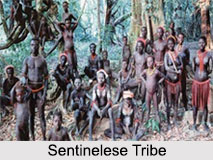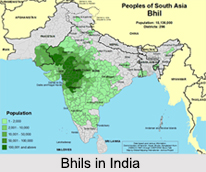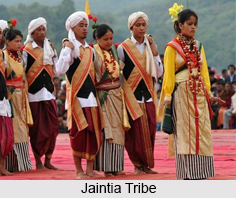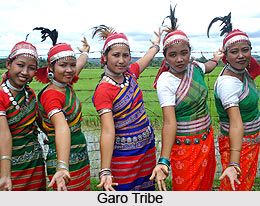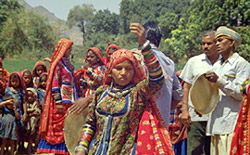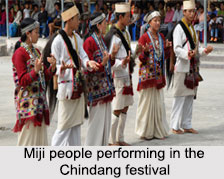 Chindang Festival is one of the most important festivals celebrated among the Miji Tribal people in Arunachal Pradesh. It is an agriculture-based festival celebrated after the harvest by offering prayers and performing rituals like animal sacrifices. The offerings are made to the mountains, rivers, Sun and Moon to seek their blessings for the well-being of humankind and for good harvest. Miji or Sajolang or Damai Tribe also offers prayers to resist the evil spirits from entering the villages and causing harm to the people and the domestic animals - the source of villagers` livelihood.
Chindang Festival is one of the most important festivals celebrated among the Miji Tribal people in Arunachal Pradesh. It is an agriculture-based festival celebrated after the harvest by offering prayers and performing rituals like animal sacrifices. The offerings are made to the mountains, rivers, Sun and Moon to seek their blessings for the well-being of humankind and for good harvest. Miji or Sajolang or Damai Tribe also offers prayers to resist the evil spirits from entering the villages and causing harm to the people and the domestic animals - the source of villagers` livelihood.
The Chindang festival is celebrated in the month of October. It is solemnized in the harvesting season when the crops are ripped and the harvest is successfully shifted to the granaries.
Origin of the Chindang Festival
The word `Chindang` means the offering in ritualistic manner to the almightily God for the well being of the community. The Chindang festival is performed for better harvest and prosperous life. In fact, the Chindang festival is also performed in order to compromise with the evil spirits, as they believe that during cultivation they might have hurt the sentiment of the evil spirits who they believe have the legitimate right over the forest land. It is performed so that the family members and the crops are not harmed by the evil spirits. The offerings by the Miji tribe are made to seek divine power for the protection and prevent evil spirits from causing diseases, epidemic and natural calamity.
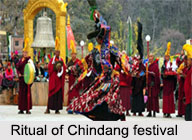 Preparation before the Chindang Festival
A week before the beginning of the festival, the elders of the village along with the priest get together to select an efficient and appropriate priest by the method of chicken liver examination, a traditional method, to be the interpreter between the God, Evil spirit and human beings.
Preparation before the Chindang Festival
A week before the beginning of the festival, the elders of the village along with the priest get together to select an efficient and appropriate priest by the method of chicken liver examination, a traditional method, to be the interpreter between the God, Evil spirit and human beings.
Rituals of Chindang Festival
Enthusiastically, the villagers prepare rice beer and smoked fish for the celebration. They also bring a yak or hen to sacrifice it in the festival celebration. The Sacrifice day is the main occasion and is believed to be the most sacred event which is observed in a traditional way. A white flag with the symbol of maize in the centre is hoisted in the ritual place during the celebration. Maize is the staple food of Sajolang Tribe; hence it is depicted as the symbol of the festival. During the celebration, the priest and his attendants perform offering through chanting rituals to appease each and every divine power, which are the Sun, the Moon, the rivers and the mountains seeking their blessings.
People gather during this festival at the ritual spot early in the morning in their traditional dresses adorned with beautiful ornaments. The white flags are displayed everywhere followed by the sacrifice amidst songs and dances by the villagers around the spot of sacrifice with Daos and shields made of Tar and Bear skin accompanied by Drums and clappers. And thereafter, follows the Giji-Goro, distribution of meat and rice beer for the community feast.
Post Celebration Customs of Chindang Festival
The Sulunku Festival is observed the very next day and the people are not permitted to go out of the village as per the traditional restrictions as part of the observation of the festival. A group hunting takes place on the following day and it is mandatory that one member from each of the household has to take part in the hunting. The festival is believed to be prosperous, if the community hunting is successful. The hunt is then brought to the sacrificial spot and is equally distributed among all the households. This Chindang festival is one of the most important festivals of the Miji Tribe.

















